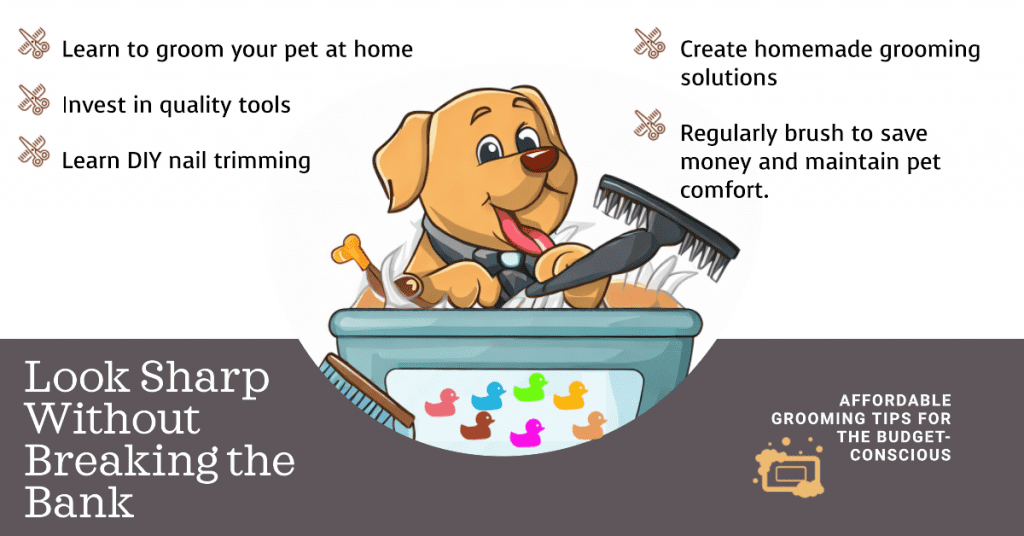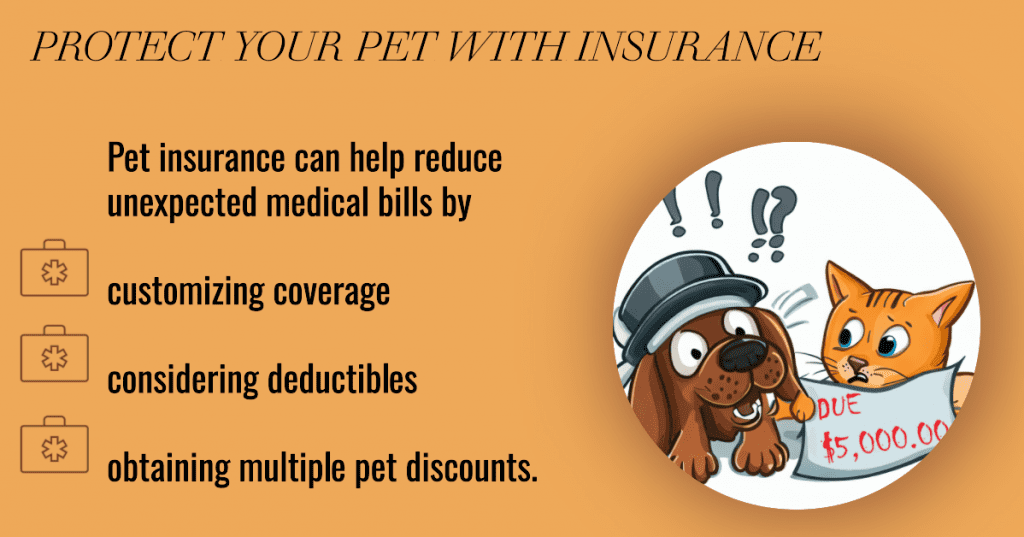Hey there fellow pet lovers! If you’re anything like me, your furry friends are an integral part of your life. But, just like any other family member, they come with their own set of expenses. From food and grooming to veterinary bills, the costs can add up. That’s why I want to share some insights on how to budget effectively without compromising on the well-being of your beloved pets.
Key Takeaways
| Budget Your Pet Expenses | Choose Affordable Pet Food | Prioritize Routine Veterinary Care |
|---|---|---|
| Set up a pet-specific budget to track costs. | Look for affordable yet nutritious pet food. | Prevention is cheaper than treatment. |
| Maintain records of pet expenses for tax deductions. | Buy in bulk and use coupons to save on food costs. | Explore low-cost clinics and telehealth options. |
| Consider pet insurance to protect against unexpected medical bills. | Research store brands and subscribe for savings. | Group appointments for multiple pets. |
| Be prepared for unexpected expenses with an emergency fund. | DIY grooming can save on professional costs. | Investigate discounts for multiple pets. |
| Shop smart for pet supplies, including toys and accessories. | Create DIY toys and buy secondhand supplies. | Don’t skip regular check-ups and vaccinations. |
| Investigate potential tax deductions for pet-related expenses. | Research veterinary schools for affordable care. | |
| Plan for your pet’s long-term well-being. |
Table of Contents
Start with a Pet-Specific Budget
Creating a pet budget is the first step to responsible pet ownership. It helps you keep track of expenses and plan accordingly. Here’s a simple budget template to get you started:
| Expense | Monthly Cost | Annual Cost |
|---|---|---|
| Food | $ | $ |
| Veterinary Care | $ | $ |
| Grooming | $ | $ |
| Toys and Supplies | $ | $ |
| Pet Insurance | $ | $ |
| Miscellaneous | $ | $ |
| Total | $ | $ |
Choose Affordable Pet Food
Quality food is crucial for your pet’s health. However, you don’t need to break the bank. Consider brands that offer good nutrition at reasonable prices. Keep an eye out for discounts and bulk-buy options to save even more.
Affordable Pet Food Tips:
| Tip | Description |
|---|---|
| Buy in Bulk | Look for bulk purchasing options for pet food. |
| Subscribe and Save | Consider subscription services for regular food deliveries. |
| Store Brands | Explore cost-effective store brands or generic pet food. |
| Coupons and Loyalty Programs | Utilize manufacturer’s coupons and loyalty programs. |
Routine Veterinary Care
Prevention is cheaper than treatment. Make sure your pet gets regular check-ups and vaccinations. Consider a pet health plan from HealthyPets or PetAssure for discounted veterinary care.
Routine Veterinary Care Tips:
| Tip | Description |
|---|---|
| Preventive Measures | Invest in preventive care like flea and tick prevention. |
| Group Appointments | Schedule check-ups together if you have multiple pets. |
| Low-Cost Clinics | Explore low-cost or mobile veterinary clinics for savings. |
| Telehealth | Consider telehealth services for minor pet health concerns. |
| Research Veterinary Schools | Look into veterinary schools for cost-effective care. |
Grooming on a Budget

Professional grooming can be pricey. Save money by learning to groom your pet at home. Invest in some quality grooming tools, and you’ll quickly become a pro.
More Grooming Tips:
1. DIY Nail Trimming: Regular nail trimming is essential for your pet’s comfort and well-being. Invest in a good pair of nail clippers and learn to trim your pet’s nails at home. There are plenty of online tutorials to guide you.
2. Homemade Grooming Solutions: Create your own grooming solutions for shampoos and conditioners. Many DIY recipes use common household items like oatmeal for sensitive skin or apple cider vinegar for coat shine.
3. Regular Brushing: Brushing your pet regularly not only keeps their coat healthy but also reduces the need for professional grooming. It can also be a bonding experience between you and your pet.
Save on Toys and Supplies

Spoiling your pet with toys and accessories is fun but costly. Look for deals at places like PetSmart or Chewy and consider DIY toys or making your pet’s accessories.
More Tips for Saving on Pet Supplies:
1. Thrift and Secondhand Stores: Check out thrift stores or online marketplaces for gently used pet supplies. Items like crates, carriers, and pet beds can often be found at a fraction of the cost of new ones.
2. Upcycle and DIY Toys: Get creative and make your pet’s toys from household items. Empty water bottles, old t-shirts, and cardboard boxes can be transformed into engaging playthings for your furry friend.
3. Join Rewards Programs: Many pet supply stores offer rewards programs for loyal customers. Sign up and earn points with each purchase to redeem for discounts or free items.
Pet Insurance

Unexpected medical bills can be a financial burden. Consider getting pet insurance from companies like Trupanion or Embrace to protect your pet and your wallet.
More Pet Insurance Tips:
1. Customize Your Coverage: Some pet insurance providers allow you to customize your policy. This means you can tailor your coverage to your pet’s specific needs, which can help reduce costs.
2. Consider Deductibles: Opting for a higher deductible can lower your monthly premium. Assess your financial situation and choose a deductible that suits your budget.
3. Multiple Pet Discount: If you have more than one pet, inquire about multiple pet discounts. Some insurance providers offer reduced rates when insuring multiple pets under one policy.
Miscellaneous Expenses
Pets always find a way to surprise us. Set aside a small amount in your budget for unforeseen costs like medications, emergency vet visits, or repairs to pet-related damage.
| Emergency Fund Category | Suggested Amount |
|---|---|
| Unexpected Illness | $ |
| Accidents or Injuries | $ |
| Medications and Prescriptions | $ |
| Repairs (Chewed furniture, toys, etc.) | $ |
| Total Emergency Fund | $ |
More Tips for Handling Miscellaneous Expenses:
1. Preventive Measures: Invest in preventive care to minimize the risk of certain health issues. For example, regular dental hygiene can help prevent costly dental procedures down the line.
2. Pet First Aid Training: Consider taking a pet first aid and CPR course. Being prepared for minor emergencies can save you from rushing to the vet for non-life-threatening issues.
Comparison Shop
Never underestimate the power of price comparison. Also, consider store brands, which are often cheaper than big-name products.
Additional Tips for Savvy Shopping:
1. Shop Online: Online retailers often offer competitive prices and a wider selection. Plus, you can take advantage of customer reviews and product ratings to make informed choices.
2. Seasonal Sales: Keep an eye out for seasonal sales and promotions. Many pet stores and online retailers offer discounts during holidays and special events.
3. Local Pet Stores: Support local pet stores and small businesses. They may offer unique products and competitive prices, and your purchase contributes to your community.
Pet-Related Tax Deductions
Did you know that some pet expenses can be tax-deductible? Check with a tax professional to see if you qualify for deductions related to service animals, fostering, or pet business expenses.
Potential Pet-Related Tax Deductions
| Expense Category | Eligibility Requirements | Deductible Amount |
|---|---|---|
| Service Animals | Must be a qualified service animal for a disability | Varies based on expenses |
| Fostering Expenses | Fostering animals for recognized charities or rescues | Varies based on expenses |
| Pet Business Expenses | Running a pet-related business or service | Varies based on expenses |
More Ways to Maximize Tax Deductions:
1. Keep Detailed Records: Maintain meticulous records of your pet-related expenses, including receipts and invoices. This documentation can help you maximize your deductions during tax season.
2. Foster for Charities: If you foster animals for recognized charities or rescue organizations, you may be eligible for tax deductions related to your fostering expenses.
3. Service Animals: If you have a service animal, be aware that expenses related to their care and training might be tax-deductible. Consult a tax professional to ensure you’re taking full advantage of available deductions.
Plan for the Long Term
Your pet’s life is a long-term commitment. Make sure you’re prepared for the years ahead. Consider setting up a pet-specific savings account to cover unexpected expenses and ensure a comfortable retirement for your pet.
Additional Tips for Long-Term Planning:
1. Pet Retirement Accounts: Consider opening a separate savings account or investment fund designated for your pet’s future needs. This fund can help cover senior pet care expenses.
2. Research Breeds: If you’re considering getting a new pet, research different breeds. Some breeds have specific health issues that may lead to higher veterinary expenses, so choose wisely.
3. Pet Legal Documents: Create legal documents like a pet trust or will to ensure your pet is cared for in the event of your incapacity or passing. Consult with an attorney who specializes in pet-related legal matters to help you set up these documents.
Conclusion
Managing your finances as a pet owner is all about striking the right balance between giving your furry friends the love and care they deserve and being financially responsible. By following the budgeting template and the tips provided in this article, you can ensure that your pets are happy, healthy, and well-cared for without breaking the bank.
Remember, responsible pet ownership is not just about providing for your pets’ basic needs; it’s also about preparing for the unexpected. From regular veterinary care to emergency expenses, setting up an emergency fund or pet-specific savings account can be a lifesaver in times of need.
By choosing affordable pet food, learning to groom your pet at home, and shopping wisely for supplies and toys, you can enjoy a fulfilling pet-owner experience without straining your budget. Don’t forget to explore options for pet insurance, tax deductions, and legal documents to safeguard your pet’s future.
So, embrace these budgeting strategies and tips, and let your pets continue to bring joy and companionship to your life without worry. After all, the love and loyalty they offer are truly priceless, and with careful planning, you can ensure they receive the best care and a happy, healthy life.

